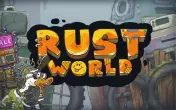Throughout history, gambling has been viewed through a range of lenses — from a harmless pastime and form of entertainment to a seedy vice that preys on human weakness. In recent years, the gambling industry has faced escalating criticism and demonization from various groups concerned about its societal impacts. Critics paint a dark picture of a manipulative industry profiting from addiction by downplaying risks, aggressively marketing to vulnerabilities, and eroding moral values through relentless expansion.

The anti-gambling narrative frames casino operators and betting companies as intentionally deceptive forces enticing people psychologically and financially through inherently exploitative games and advertising.
Gambling is protested as a regressive tax that extracts wealth from the poor and imposes larger societal costs through bankruptcy, crime, and strained social services.
The Casinoz article will overview the key criticisms leveled at the gambling industry by religious groups, anti-gambling activists, and others who view it as a dangerous blight that must be heavily restricted. It will also present the industry's defense that it provides a legal entertainment option while complying with regulations and responsible gaming initiatives.
The piece will examine the contradictory relationship gambling has with public policy goals, the philosophical quandaries around its existence, and the push for a middle ground between allowing an economically impactful industry to operate while mitigating potential harms through evidence-based practices and regulation.
The article aims to illustrate the complexities and continual societal evaluation needed to determine where acceptable boundaries lie for this controversial yet popular pastime by overviewing the intensity of the ethical scrutiny placed on gambling from both sides.
The Anti-Gambling Narrative
Those critical of the gambling industry paint it as a powerful, deceitful force that unethically promotes and exploits addictive behaviors purely for profit motives. Gambling games themselves are framed as inherently manipulative — designed with psychologically divisive principles to keep people hopelessly chasing payouts.
- Critics argue the industry understates the extremely low odds of winning and the genuine threat of compulsive gambling disorder developing.
- Advertising is condemned as predatory, utilizing aggressive multi-channel campaigns and sophisticated data targeting to entice vulnerable demographics like youth, economically distressed communities, and the elderly.
- The industry's relentless push to normalize and ingrain gambling within mainstream entertainment and communities is labeled as a deliberate effort to desensitize society to the dangers.
- Opponents view the rapid expansion of casino gambling venues and legal online betting options as an unethical perpetuation of gambling's societal harm for the benefit of corporate greed.
- Gambling is derided as a regressive economic drain that generates private profits by stripping wealth from those who can least afford it.
- Religious groups, in particular, brand its existence as overtly immoral and an erosion of virtuous values.
- Some crusaders go so far as to liken gambling companies' business models to blatant institutionalized exploitation no different than unscrupulous loan sharks.
While acknowledging regulation and some responsible gambling measures, the fundamental characterization from gambling critics is that of a largely unrestrained industry spearheading unethical normalization efforts under the guise of individual liberty. They contend the industry obfuscates the severe financial, criminal, and mental health repercussions of gambling addiction taking root.
Claims of Economic Harms
Beyond the devastation gambling addiction can inflict on individuals and families, critics point to more considerable economic costs and drains they argue offset or even exceed any benefits gambling may generate.
- A frequent claim is that gambling operations breed higher rates of bankruptcy, personal debt loads, home foreclosures, and reliance on public assistance programs. The wealth extracted from communities is purported to increase financial insecurity and strain social services.
- Some studies have linked communities with more gambling accessibility to increased costs related to treating gambling disorders, as well as higher rates of financial crimes like embezzlement, insurance fraud, and writing bad checks as addicts desperately chase losses.
- Gambling is accused of contributing to job losses and business failures when employees struggle with compulsive gambling.
- Costs of gambling-related domestic violence, child neglect, and other family disruptions are highlighted as economic burdens.
- Casinos and sportsbooks that can expand have been criticized for cannibalizing entertainment spending that could otherwise flow to more productive local businesses within communities.
- Some economists suggest gambling merely reshuffles income from other sectors without producing broader economic growth.
- Critics contend that any benefits, such as tax revenues and jobs created by gambling facilities, are diminished once factors like increased regulatory costs, infrastructure expenditures, and social service safety net demands are weighed against them.
While the industry touts its employment impacts, detractors question whether the wealth transfer effect on local economies makes gambling-based jobs a net positive or simply a zero-sum regressive tax on communities. The true economic value gambling generates remains an intensely debated issue.
The Gambling Industry Defense
While acknowledging the seriousness of gambling addiction, the industry firmly pushes back against accusations that it intentionally promotes compulsive behavior or obfuscates risks purely for profit motives.
Representatives argue that the vast majority of customers view gambling as a recreational activity and form of entertainment, not a pathway to fiscal irresponsibility. They contend that the house always retaining a mathematical edge is similar to businesses profiting from other entertainment spending like sporting events, concerts, or dining out.
For the relatively small percentage that does develop problems, the industry highlights various resources:
- self-exclusion programs,
- gambling disorder counseling helplines,
- funding for treatment and prevention services, etc.
Major operators have implemented responsible gaming initiatives with principles like secure age verification and cooling-off periods for aggressive marketing targeting.
In advertising, the industry defends its rights to market products legally, no different than other vices like alcohol or unhealthy foods. They argue that adhering to all regulations and emphasizing legal-age audiences show that they take concerns around vulnerability exploitation seriously.
Casino companies counter economic harm claims by touting the tax revenue windfalls they generate for communities to fund programs like education, infrastructure, and services for citizens. Employment impacts are highlighted, with analysts estimating the industry employs over half a million workers in the U.S. alone.
The industry recognizes the downsides requiring mitigation but frames its economic role as a quality job creator while contributing billions in wages, taxes, and consumer spending on goods and services. With responsible gaming programs in place, it argues that any costs are outweighed by the overall economic benefits delivered.
Ultimately, the industry aims to position itself as an entertainment provider operating no differently than other companies while recognizing that special precautions are necessary given its offerings' addictive potential. It pushes back against moral crusaders seeking gambling prohibitions as impractical and ineffective.
Middle Ground and Perspectives
While the ethical debates surrounding gambling can get polarized, there are efforts to find a balanced middle ground that addresses legitimate concerns through regulation and evidence-based responsible gambling practices, while still allowing a legal industry to operate.
Most jurisdictions take a public health approach, implementing numerous measures:
- self-exclusion lists,
- mandatory operating licenses,
- advertising restrictions,
- funding for treatment and prevention programs.
The goal is to mitigate gambling's potential societal costs and adverse impacts on vulnerable groups.
However, views differ on where lines should be drawn and how far regulations should go to protect individuals from their choices without overstepping personal freedoms.
Some argue that "victim-less" activities don't warrant heavy-handed rules, while others see gambling as carrying unacceptable public health risks requiring stronger interventions.
There are also clashing economic perspectives on gambling's costs versus benefits. Industry advocates tout job creation and tax windfalls, while critics still view gambling's wealth extraction and social costs as a net drain. Quantifying the actual economic value is complex.
Underlying the divisions are deeper philosophical questions surrounding concepts of free will, individual liberty, and societal obligations to protect citizens from self-destructive behaviors. Where moral lines exist separating vices from legitimate entertainment remains contentious.
Some view gambling as an unacceptable regressive economic policy that generates revenue by harming a state's citizens who can least afford it. Yet, others see it as a reasonable revenue source if mitigated to address apparent risk factors like addiction.
Balancing economic development priorities, harm reduction, and respecting personal choice remains an ongoing challenge. But most tend to agree some regulation is appropriate to curb gambling's potential excesses and societal strains while still preserving its legal existence for those who can participate responsibly.
Conclusion
The level of scrutiny, criticism, and demonization the gambling industry faces underscores the unique ethical tensions surrounding its very existence and operations.
- On one side are those framing gambling as an inherently manipulative vice that breeds addiction, extracts wealth from vulnerable populations, and imposes larger economic drains that outweigh any benefits. This perspective casts gambling companies as corporate forces unscrupulously normalizing and expanding societal harm for profit motives.
- Conversely, the industry aims to position itself as a legitimate entertainment provider meeting consumer demand for a legal recreational product. While acknowledging gambling's risks and the need for mitigation efforts, representatives defend marketing rights, highlight economic contributions, and push back against moral crusaders seeking impractical prohibitions.
Finding an appropriate middle ground remains challenging given the conflicting societal priorities — safeguarding public health and ethical obligations versus economic interests and individual liberty.
Evidence-based regulation committed to responsible gambling practices and quantifying actual economic impacts could help achieve compromise.
However, the fundamental ethical quandaries gambling presents are deeply rooted in differing moral philosophies regarding concepts like free will, the role of government intervention, and where lines exist between accepted vices and destructive behaviors warranting severe restriction. These divides will likely ensure gambling's existence sparks perpetual scrutiny and continual re-evaluation of policies.
For an industry predicted to exceed $500 billion worldwide, maintaining public trust and organizational legitimacy requires proactive measures demonstrating aligned commitments to consumer protection, transparency, and comprehensive responsible gambling agendas. Failure could risk more severe stigmatization and restrictive government intervention.
While intense, the criticisms reflect complex societal concerns surrounding a product uniquely straddling the paradoxical realms of entertainment and personal impairment. Ethical examinations will likely accelerate as gambling evolves across new markets and technologies, pushing the industry and regulators to navigate appropriate balances. The demonization discourse ultimately underscores the perpetual need to reevaluate where acceptable moral boundaries should exist.














